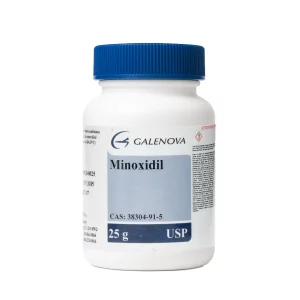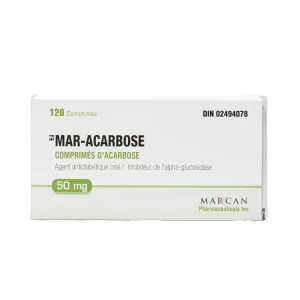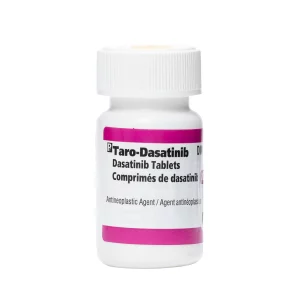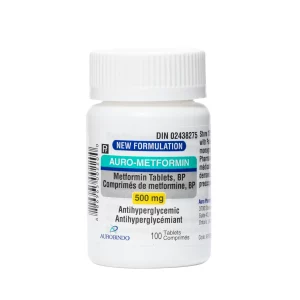Your cart is empty.
Your cart is empty.
Choosing safe medications for long-term health becomes crucial when you’re planning decades of wellness optimization. Both acarbose and Ozempic have emerged as popular options for blood sugar control and weight management. Understanding how Acarbose vs Metformin compares, exploring Acarbose for longevity benefits, and knowing where to Order Acarbose are important steps in building your health strategy.
This comprehensive safety comparison will help you understand which option aligns better with your long-term health goals and risk tolerance.
Acarbose is a carbohydrate absorption inhibitor that works locally in the digestive system. It interferes with enzymes that break down complex sugars, thereby slowing glucose absorption after meals. Ozempic is a GLP-1 receptor agonist that mimics naturally occurring hormones, stimulating insulin secretion and influencing appetite regulation.
Both compounds support blood sugar management but operate via different biological mechanisms, acarbose through digestive enzyme inhibition and Ozempic through hormonal modulation.

Acarbose acts in the small intestine during digestion by inhibiting alpha-glucosidase enzymes, which slows the breakdown of starches into glucose. This timing-dependent action produces transient effects limited to periods when food is being digested, allowing for intermittent metabolic support without continuous systemic exposure.
Its localized mechanism offers predictability and has been widely studied for long-term integration into broader wellness routines.

Ozempic stimulates GLP-1 receptors, which help enhance insulin release in response to glucose and slow gastric emptying. These effects contribute to prolonged satiety, improved glycemic control, and reduced postprandial glucose variability.
Its activity can persist for up to one week after administration, providing continuous metabolic support through hormonal pathways under investigation for broader applications in metabolic and age-related conditions.
Acarbose has been evaluated across more than two decades of research, including multi-year follow-up studies that show a consistent safety profile. Due to its minimal systemic absorption, it poses limited long-term risk beyond initial digestive adjustments.
Published studies note that gastrointestinal effects often subside within several weeks, and no significant increase in adverse health outcomes has been observed during extended use under medical supervision.
Ozempic’s safety record has developed over approximately 15 years, with clinical trials following participants for up to five years. Cardiovascular outcome data has shown a reduction in major adverse cardiac events among individuals with pre-existing heart conditions.
The compound is generally well tolerated, though research continues to monitor its long-term safety across broader populations and durations.
Both compounds may involve gastrointestinal adjustment periods. Acarbose often leads to transient effects such as gas or bloating due to altered carbohydrate digestion patterns. These effects tend to decrease over several weeks of consistent use.
Ozempic may produce early-phase effects like nausea or appetite changes as the body adjusts to altered gastric emptying and hormonal activity. These typically stabilize with ongoing use.
Acarbose has shown neutral to favorable outcomes in cardiovascular evaluations, particularly through better postprandial glycemic control. Some research suggests it may contribute to reduced cardiovascular risk over time through glycemic modulation.
Ozempic has been directly studied in cardiovascular outcome trials, with statistically significant reductions in events such as heart attacks and strokes. It has received regulatory approval for cardiovascular risk reduction in select populations.
Acarbose may support modest weight changes by reducing carbohydrate-derived caloric absorption. This approach has not been associated with rebound weight gain or metabolic disruption in long-term studies.
Ozempic has demonstrated greater weight loss effects in clinical trials, often ranging from 10–15% of initial body weight, depending on the population studied. These effects have been maintained in follow-up evaluations under medical supervision.
Acarbose has shown promise in animal studies related to lifespan extension and metabolic stability. Human studies indicate potential benefits in reducing oxidative stress and improving gut microbiota composition, both of which may support healthy aging.
Ozempic is associated with systemic metabolic improvements, including better insulin signaling and reduced inflammatory markers. It is under active investigation for broader age-related applications, including potential neuroprotective properties.
Acarbose is typically administered with meals, allowing for flexible use tied to food intake. This approach can accommodate variations in daily routines and meal sizes, offering adaptable scheduling without persistent systemic exposure.
Ozempic involves weekly administration, maintaining a consistent level of activity independent of meals. While convenient for some, it requires adherence to a fixed schedule involving injectable delivery.
Acarbose generally requires minimal ongoing monitoring beyond standard wellness check-ups. Periodic assessments such as blood sugar tracking and occasional liver function evaluations are often sufficient, based on published treatment protocols.
Ozempic monitoring may involve more frequent evaluations in the early stages, including kidney function, thyroid parameters, and cardiovascular indicators. Ongoing use may also require periodic follow-up to assess tolerance and effectiveness.
Acarbose is available in generic form, offering affordability and broad access for long-term use. Pricing tends to remain stable over time due to expired patents and market competition.
Ozempic remains under patent protection and is priced significantly higher. While future generic versions may become available, current cost levels often require budget planning and reimbursement consideration.
Acarbose may suit individuals prioritizing localized gastrointestinal mechanisms with minimal systemic influence. It may appeal to those preferring meal-timed administration and gradual metabolic improvements without significant hormonal intervention.
Its extensive long-term safety data and neutral cardiovascular profile make it a consideration for those seeking gentle, consistent health support over extended periods under the guidance of healthcare professionals.
Ozempic may benefit individuals requiring comprehensive metabolic changes or those with pre-existing cardiovascular risk. Its weight-loss potential and multi-system activity make it a candidate for those seeking more pronounced outcomes.
It may also be preferred by those comfortable with injectable therapy and able to accommodate the associated cost and monitoring requirements.
The primary differences between acarbose and Ozempic include mechanism of action, level of systemic involvement, monitoring needs, and cost structure. Acarbose offers a well-established profile with localized effects, while Ozempic delivers broader metabolic support and cardiovascular benefits at a higher level of systemic engagement.
Long-term health strategies may benefit from comparing tolerance for different approaches, willingness to undergo routine evaluations, and investment preferences, with professional medical input guiding final decisions.
Acarbose has long-standing safety data spanning 25+ years. Ozempic’s safety data covers about 15 years and continues to expand with longer-term studies.
Switching may be possible when implemented gradually under appropriate supervision, with health status monitored throughout the transition.
Both compounds have demonstrated low complication rates in long-term studies. Selection often depends on individual tolerance and clinical context.
Acarbose use typically involves routine annual assessments. Ozempic may require more frequent monitoring in the initial months of use.
Acarbose has longevity-related data from animal models and metabolic studies. Ozempic is being investigated for potential benefits in cardiovascular aging and neuroprotection.
Discontinuing acarbose does not typically require special protocols. Adjustments to Ozempic schedules may require additional planning due to its extended activity in the body.
Harrison, D. E., Strong, R., Allison, D. B., Ames, B. N., Astle, C. M., Atamna, H., Fernandez, E., Flurkey, K., Javors, M. A., Nadon, N. L., Nelson, J. F., Pletcher, S., Simpkins, J. W., Smith, D., Wilkinson, J. E., & Miller, R. A. (2014). Acarbose, 17-α-estradiol, and nordihydroguaiaretic acid extend mouse lifespan preferentially in males. Aging Cell, 13(2), 273-282.
https://pubmed.ncbi.nlm.nih.gov/24245565/
Lincoff, A. M., Brown-Frandsen, K., Colhoun, H. M., Deanfield, J., Emerson, S. S., Esbjerg, S., Hardt-Lindberg, S., Hovingh, G. K., Kahn, S. E., Kushner, R. F., Leiter, L. A., Lingvay, I., Oral, T. K., Michelsen, M. M., Plutzky, J., Tornøe, C. W., & Ryan, D. H. (2023). Semaglutide and cardiovascular outcomes in obesity without diabetes. New England Journal of Medicine, 389(24), 2221-2232.
https://www.nejm.org/doi/full/10.1056/NEJMoa2307563
Marso, S. P., Bain, S. C., Consoli, A., Eliaschewitz, F. G., Jódar, E., Leiter, L. A., Lingvay, I., Rosenstock, J., Seufert, J., Warren, M. L., Woo, V., Hansen, O., Holst, A. G., Pettersson, J., & Vilsbøll, T. (2016). Semaglutide and cardiovascular outcomes in patients with type 2 di





Unlock savings on bundles and elevate your online experience today!